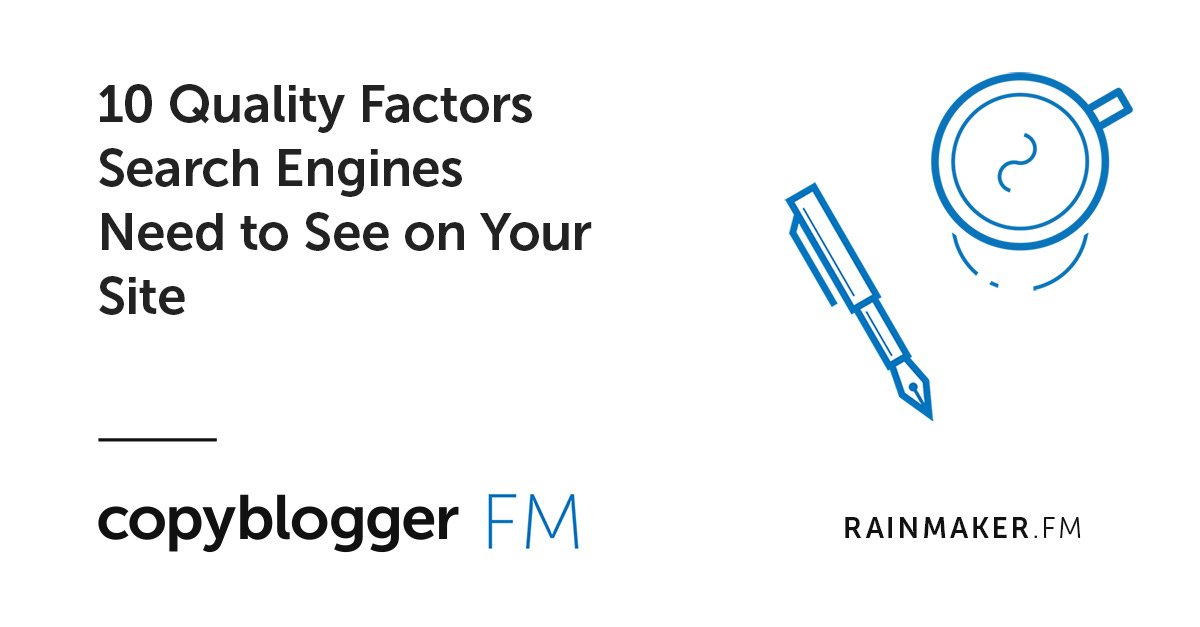Keyword research is always a hot topic in content marketing circles.
It’s one of those subjects that never goes out of style — because wise content marketers know that using the right words in their content will give them a big edge over their competition.
Wondering how to find the “right” words to optimize your business’s content? Here are three quick tips for solid keyword research.
1. Discover the language your prospects use when they talk about your topic
My friend Shawn, whose company Clear Harmonies creates custom a cappella arrangements for vocal groups, learned an interesting marketing lesson after performing some focused keyword research and talking to his customers.
He thought that his prospects searched for the term “a cappella arrangements” when they looked for arrangement services online. But he discovered they actually searched for the term “a cappella sheet music” much more often.
Shawn’s story illustrates why it’s important that you discover the actual language your potential customers use when they search for information about your topic (or look for vendors who provide your services).
This is not a time to guess or assume you know your audience so well that you know what they’re thinking.
In addition to online keyword research tools, you can also:
- Check out the comments you get from your community members and pay attention to the terms they use when they tell stories, ask questions, and offer opinions about your content.
- Collect keyword data about the terms people were searching for right before they click on your site from most site statistics or analytics programs. It’s a gold mine for you as a content creator.
- Conduct interviews or social media discussions to ask your prospects and customers about the terms they search for when they’re looking for information about your topic.
2. Study the content your prospects consume
Great copywriters thoroughly research their topics before they start writing projects.
Copywriters want to make sure they understand the language their prospects use before they craft their copy, because without that knowledge, they know their copy won’t convert.
You need to do the same thing with your keyword research. Read the articles your prospects read and study the language the authors use.
Find out which social media platforms your customers prefer and hang out on those sites. Watch for discussions where people ask questions or debate each other.
Popular videos, webinars, and podcasts in your niche are other resources. You can even review social media ads that target your ideal customer.
This technique will not only enhance your keyword research process, it will also ensure that you’ll never run out of content ideas!
3. Remember that language evolves over time
Search terms are always evolving and the way your customer speaks about your topic will change over time, too.
It’s smart to repeat your keyword research on a regular basis to make sure you stay current on the language people use.
To incorporate keyword research into your content marketing routine:
- Add reminders to your calendar (quarterly, biannually, or annually) to prompt you to conduct additional keyword research.
- Try a method you haven’t used before: experiment with a different keyword research tool, monitor conversations on social media, or conduct interviews.
- Make time for keyword research after a task you already perform regularly, like checking your website traffic stats on a monthly basis.
The multiple (and often overlooked) benefits of keyword research
By discovering the language your customers already use, consuming the content that’s popular with your audience, and cultivating consistent research habits, you keep keyword research at the top of your business’s priority list.
Which is smart, because keyword research doesn’t only help you rank higher in search engines, it can also give you an endless supply of content topics and product ideas.
How has keyword research helped you optimize your content? What are your favorite tips? Share in the comments below.



![[08] 10 Goals that Make Content Marketing Meaningful](../../rainmaker.fm/wp-content/uploads/2017/07/sites-008.jpg)


Thanks Beth!
A lot of people have been reaching out to me with the recent change to the Adwords keyword tool.
You hit the nail on the head that it’s more important to target keywords that your target audience would be searching, rather than the highest volume keywords..
Exactly, Brent! If your perfect clients/customers aren’t searching for those terms, it doesn’t really matter how popular the terms are.
“This is not a time to guess or assume you know your audience so well that you know what they’re thinking.”
Love this. One of the worst mistakes you can make when doing seo is trying to come up with all the keywords yourself. Really get to know your client and their customers, every niche is different.
Totally agree, Brandon. Guessing is never a good idea in content marketing!
This is something I’ll admit that I’ve done in the past – just assumed that ‘these are the keywords consumers must be using’, but keyword research tools have shown a plethora of terms that I certainly wouldn’t have managed to come up with, and I agree that as the language of products evolve, we should do regular checks to ensure we’re keeping up with that evolution.
Hello Beth,
Thanks for this educative post. Keywords really plays a vital role when we are doing on Page SEO for our website or blog. I am using some keyword research tools like semrush to analyze and choose right keywords for my blog posts.
I recently paid to use the moz keyword tool, and its been really insightful. (but expensive!) it helps find synonyms and other wording that i never would have thought to include in my post. also, i’ve realized the importance of allowing comments on blogs, as people discussing the topic seem to add those terms naturally to the post. thx for the post!
The moz keyword tool helps in some cases. Alot of it is common sense in a way if you have been doing SEO. If it does not benefit you do not pay for it.
As Moz’s SEO, I’m a bit bias, but truly love our Keyword Explorer tool!
What’s unique is that you can apply filters like “are questions” to your keyword research, save lists for future re-evaluation, see what SERP (Search Engine Result Pages) Features show up for the different keywords, and track rankings.
However, if you want to save money, you should check out these Free Keyword Research Tools:
Google Keyword Planner (for basic or geo-targeted keyword research)
AnswerThePublic.com
Ubersuggest.io
Bloomberry.com
Hope that helps,
Britney
Hello Beth,
Great article. I remember when I started my blog I spent time and money on the keyword research, in fact, I spend two whole weeks just doing research. Two weeks seems a lot, but if you mess up at the start of your keyword research then you will carry that “mess up” for a very long time. Keyword research is VERY important.
Once again, thank you for the tips.
Hi Beth,
This is a good take on keyword research. One can get a lot of insights by reading into their customer/client interactions such as blog comments, service request emails, reviews etc. It is very important to incorporate your customer’s language in your web pages and blogs to increase readability.
Another point I would like to add is doing a competitors analysis. This way your keyword research is holistic and effective.